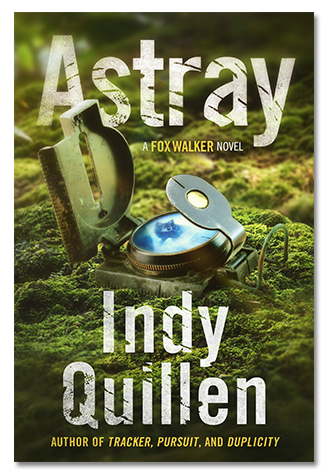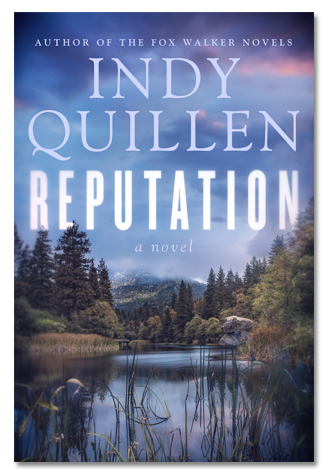
When my hubby and I first ventured into the world of backpacking and primitive tent camping, I thought we were pretty knowledgeable. After all, we both grew up in the Midwest and had been fishing and hiking all our lives. But, like everything in life, there was a bit of a learning curve to get through. Following are some of the life lessons we still remember (and occasionally refer to) to this day.
Campfire Showers Teach Efficiency:
Nothing feels quite as good as a hot shower when you’ve been backpacking or camping for days. But taking a shower at a campground, while simultaneously feeding in quarters to get a steady stream of hot water, teaches you how to wash extremely fast and efficiently. To this day we still refer to a quick shower here at home as a Campfire Shower. And that may explain why we are still obsessed with having a supply of quarters on hand.
Never Trust a Raccoon:
 These oh-so-cute creatures look like they’re wearing a mask for good reason. They are food thieves. These resourceful and bold critters will stop at nothing to steal food. Nothing.
These oh-so-cute creatures look like they’re wearing a mask for good reason. They are food thieves. These resourceful and bold critters will stop at nothing to steal food. Nothing.
In Yosemite a three-legged raccoon ran right into our camp and attempted to steal our food while we ate at our campfire. And they will eat through all sorts of containers to get at what’s inside. I’ve had a raccoon grab a bag of food right out of my hands. Do not underestimate them!
Wet Mud—the Cure-All:
Whenever my Dad and I went fishing, my legs were always a magnet for Stinging Nettles (we won’t even talk about the Poison Oak). He taught me to dab some thick, wet mud on the stings to stop the pain. I’ve found this remedy works on just about any kind of sting or bite you might encounter out in the woods. If you’re far away from Baking Soda—go for the mud.
Building a Fire with Damp Wood is Not Fun:
I’ve always been proud of the fact I can build a fire with one match. But during a last-minute impromptu camping trip, we made the mistake of relying  on purchasing our wood from the rangers at the campground. Unfortunately all they had on hand was quite green and very damp (read wet) logs. Rules at state and national parks forbid gathering wood, so we struggled for hours and finally did manage to get a decent fire going, only because we happened to have some hot-burning fire-starter sticks on hand (always have a plan B and C). Thank goodness it wasn’t a life or death situation!
on purchasing our wood from the rangers at the campground. Unfortunately all they had on hand was quite green and very damp (read wet) logs. Rules at state and national parks forbid gathering wood, so we struggled for hours and finally did manage to get a decent fire going, only because we happened to have some hot-burning fire-starter sticks on hand (always have a plan B and C). Thank goodness it wasn’t a life or death situation!
Now we make sure to bring our own wood supply with us–and alternate ways to start a fire. But the experience prompted me to do research on how to forage for dry wood in a wet environment (in case it ever was an emergency situation)…you never know…
Bear Boxes are there for a Reason – Use Them!
 We’ve always been extremely conscientious about keeping our food in bear proof containers while backpacking and camping in bear country. When we crawl into our tent at night, nothing goes into the tent with us that has a scent (not even a tube of toothpaste), everything is either in a Bear Canister or a metal bear proof storage locker, usually provided at the campgrounds. Unfortunately, one trip put us next to some idiot campers who (despite warning signs everywhere) insisted on leaving out multiple coolers, empty soda cans and other bear attracting items all over their campsite. It was the day before we planned to take off backpacking and so we were stuck next to them for the night. Of course at midnight we weren’t surprised to be awakened by the noise of a bear destroying their coolers and wrecking general havoc with their property. All this a mere 20 feet from our tent! The next morning the campers exclaimed with wonder that those warning signs were for real. Seriously?! It was just too bad the bear left the campers themselves unscathed, I say.
We’ve always been extremely conscientious about keeping our food in bear proof containers while backpacking and camping in bear country. When we crawl into our tent at night, nothing goes into the tent with us that has a scent (not even a tube of toothpaste), everything is either in a Bear Canister or a metal bear proof storage locker, usually provided at the campgrounds. Unfortunately, one trip put us next to some idiot campers who (despite warning signs everywhere) insisted on leaving out multiple coolers, empty soda cans and other bear attracting items all over their campsite. It was the day before we planned to take off backpacking and so we were stuck next to them for the night. Of course at midnight we weren’t surprised to be awakened by the noise of a bear destroying their coolers and wrecking general havoc with their property. All this a mere 20 feet from our tent! The next morning the campers exclaimed with wonder that those warning signs were for real. Seriously?! It was just too bad the bear left the campers themselves unscathed, I say.
The Tent Floor is Thinner Than You Think:
You’ve been backpacking for hours and you need to get your camp set up before nightfall. You’re tired and hungry. It’s so tempting to just throw up your tent in the nearest mostly cleared spot. But remember, that thin layer of tarp doesn’t smooth out the ground or magically eliminate the rocks, sticks and mole hills for you. You’d be amazed at how huge that little pebble feels under your back in the middle of the night. Take the extra minutes to prepare the ground for your tent…and especially remove anything sharp that might puncture the tent floor. If you’re lucky, you’ll have some fallen evergreen needles to layer under it—for a nice cushion and insulation from the cold, damp ground. It’ll be worth the extra effort when you finally crawl into your sleeping bag that night. Pleasant dreams!
Did I mention the Raccoons?


 Being outside in nature is the most basic part of who I am. Besides gaining knowledge about wildlife, I learn lessons about who I am, and surprise myself about what I am capable of achieving. Nature continually inspires me. It is a part of all my writings, no matter the genre or subject matter.
Being outside in nature is the most basic part of who I am. Besides gaining knowledge about wildlife, I learn lessons about who I am, and surprise myself about what I am capable of achieving. Nature continually inspires me. It is a part of all my writings, no matter the genre or subject matter. 




